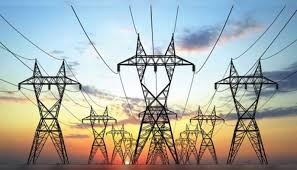


Shell set to upscale investments in deep water, renewable
Shell says it is working to extend the life of its Bonga Floating, Production, Storage, Offloading vessel by another 15 years.
This would enable the company to handle more production from Nigeria’s first deep-water development which came on stream in 2005.
The assurance was given in Lagos on Thursday by Managing Director, Shell Nigeria Exploration and Production Company Ltd., (SNEPCo), Ms Elohor Aiboni.
She was speaking at a panel discussion at the on-going 8th Sub-Saharan Africa International Petroleum, Exhibition and Conference (SAIPEC).
Aiboni said Bonga’s main life extension project came as the company explored opportunities in deep-water, gas and renewables in Nigeria where it pioneered oil and gas production in 1956, more than 60 years ago.
“Shell is committed to developing its robust portfolio in Nigeria.
“We are maturing numerous projects planned to come on stream in the short, medium, and long terms with the right fiscal and regulatory framework,” she assured.
She said Bonga produced Shell’s one billionth barrel of oil in 2023 and SNEPCo had stepped up efforts for additional volumes from existing assets with more to come on stream in 2024 and beyond.
“Other opportunities in deep-water include the Bonga North as well as Bonga South-West and Nnwa Doro projects on which SNEPCo is collaborating with the Nigerian government and partners to implement.
“Shell is also expanding its gas portfolio with both SNEPCo and the Shell Petroleum Development Company of Nigeria Ltd (SPDC) maturing several projects to deliver gas from their onshore and deep-water assets.
“Shell Nigeria Gas is currently serving more than 130 industrial and commercial customers, and looks to expand its distribution network to deliver over 1,000mw equivalent of energy to industrial parks and manufacturing companies,’’ she added.
Aiboni also told the conference that off-grid solutions were the quickest way to improve energy access in Nigeria’s remote communities.
“Shell’s investments in this area will provide millions of Nigerians access to reliable and sustainable electricity.
“Shell Nigeria is driving uptake in renewable energy through two companies – All On and Daystar Power Solutions.
“All On has facilitated more than 80,000 off-grid connections in the 36 states of Nigeria including the FCT, with nearly 200 underserved communities and 560 new businesses powered with clean energy.
“Daystar plans to increase its installed solar capacity to 400mw by 2025 to become one of Africa’s leading providers of solar power solutions for commercial and industrial businesses,’’ she said.
She stressed that over the years, Shell had proved to be a reliable partner in the development of Nigeria through its range of businesses and mainly the energy it produced.
“We will continue to look for innovative ways to reduce cost and drive efficiency in our business.
“We want to remain highly competitive and relevant in the oil and gas business and still stand tall in spite of challenges,’’ Aiboni said.
The conference was organised by the Petroleum Technology Association of Nigeria.



